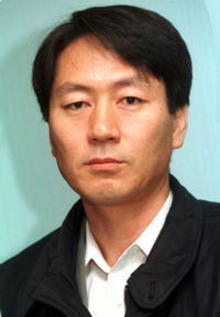 |
Lee brags about being an admirer of the Japanese spirit; he has written a special introduction to Inazo Nitobe’s "Bushido." In his speech, he said that Taiwan has Japanese colonial rule to thank for its modernization, and he represents a true pioneer for Koreans who have recently begun to associate colonial rule with modernization. Lee was born in Taipei in 1923. At one point, he assumed the Japanese name Iwasato Masao. He studied agriculture at Kyoto Imperial University before joining the Japanese army, where he was sent to serve with an anti-aircraft brigade. He says he was "Japanese until the age of 22," and has consistently maintained a pro-Japanese, anti-Chinese-mainland political stance. He saw to it that his brother, who died at 24 in battle as a member of the Japanese navy in 1945, had his memorial tablet placed at Yasukuni Shrine. Later, Lee studied agricultural economics at Iowa State University and Cornell University, where he received his Ph.D. When Taiwanese president Chiang Ching-kuo died in 1988, he assumed the presidency and held that position until 2000. In April 2001 he went to Japan for medical treatment, despite protests from China, which considers him the de facto head of Taiwan’s independence movement. Lee goes to Tokyo September 12-17 as a tourist. It will be his first time to visit the Japanese capital. Japan’s Liberal Democratic Party chooses its next chairman - and therefore Japan’s next prime minister - on September 20. One does not need to wonder why Japan is having Lee pay a visit at this time.





